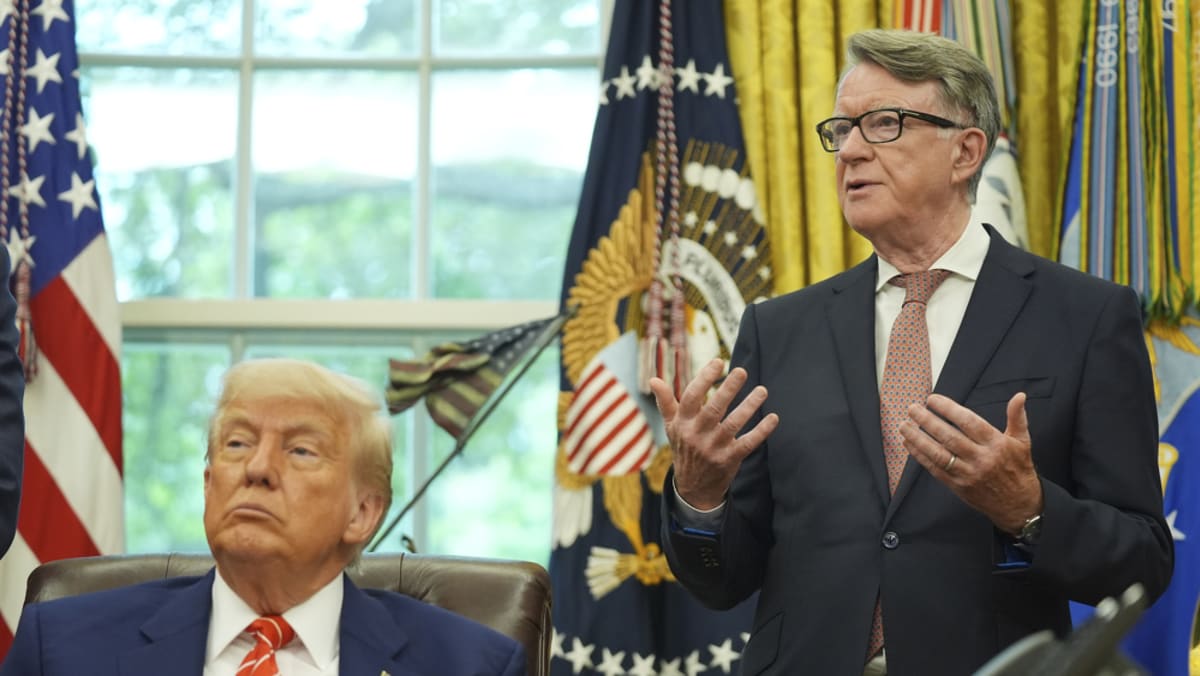WASHINGTON: The “breakthrough” US-UK trade deal announced Thursday (May 8) by President Donald Trump is the first agreement to be unveiled since he slapped steep tariffs on allies and adversaries alike on Apr 2.
The deal will see Washington lower tariffs on British luxury cars and lift them entirely on steel and aluminium, although a 10 per cent baseline levy on British goods stays in place.
As Trump announced the deal while making a phone call to Starmer in the Oval Office, he said Britain would, in return, open up markets to US beef and other farm products.
But the deal remained thin on details, despite Trump hailing it as a template for deals with other countries such as China after his “Liberation Day” tariffs in April.
During a call with Trump, British Prime Minister Keir Starmer said of the deal: “This is a really fantastic, historic day.”
Here is what we know about the new trade deal for goods:
“INCREASED MARKET ACCESS”
The 10 per cent baseline tariff imposed on most US trading partners in early April remains in effect for most goods, with the largest reductions in trade barriers coming on items recently subjected to new sector-specific tariffs of 25 per cent.
The new deal includes “billions of dollars of increased market access for American exports”, Trump said during the Oval Office announcement, which was attended by Peter Mandelson, the British ambassador to the United States.
The agreement will bring in an additional US$6 billion to the Treasury Department’s coffers from new tariff revenue, the White House said in a statement.
The deal is sure to be closely scrutinised ahead of the Trump administration’s self-imposed July deadline for talks, with some nations facing a far higher rate of tariffs if no deal is struck.
“This was the lowest hanging fruit available to the administration,” Josh Lipsky, chair of international economics at the Atlantic Council, told AFP.
“It sends the message that negotiations are going to be complicated going forward, because the UK situation is unique in many ways and will be hard to replicate for other countries,” he added.
BOOST FOR BRITISH AUTO SECTOR
The British automotive industry is a clear winner.
The sector, which employs a quarter of a million people in the United Kingdom, was facing 27.5 per cent tariffs before this announcement, according to a statement from Prime Minister Keir Starmer’s office.
Under the deal announced Thursday, car export tariffs will be slashed to 10 per cent on the first 100,000 cars shipped from Britain to the United States, with any additional exports taxed at 25 per cent.
The 100,000 figure is “almost the total” that the UK exported to the United States last year, the British prime minister’s office said.
STEEL AND ALUMINIUM
Another key development in the deal is the agreement from the United States to eliminate its recently imposed levies of 25 per cent on UK-made steel and aluminium, according to the British government.
The new agreement “furthers shared national security interests, creating a new union for steel and aluminium”, the US Commerce Department said, without confirming the 0 per cent tariff rate.
The White House did not immediately respond to a request for comment on the elimination of all steel and aluminium tariffs.
